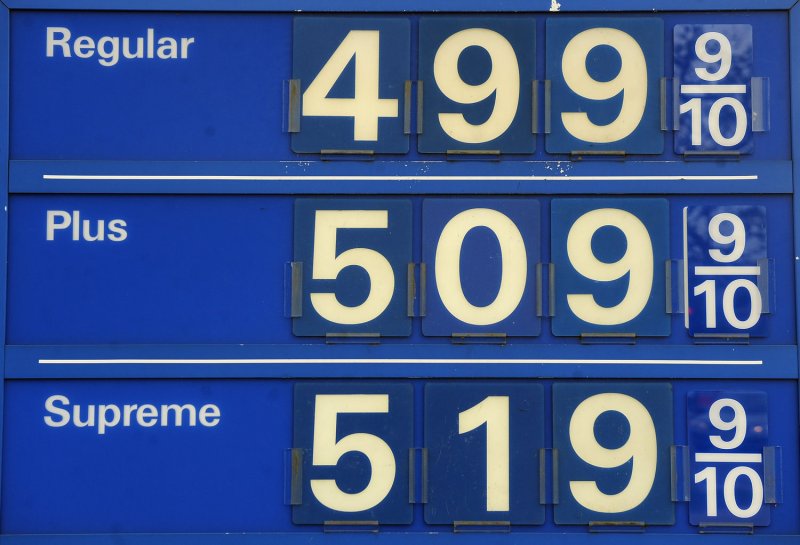Gas prices reach five dollars per gallon at a gas station in Washington, DC on April 19, 2011. Unrest in the Middle East and price speculation have steadily led to higher oil prices and consequently higher gas prices throughout the year so far. UPI/Roger L. Wollenberg |
License Photo
NEW YORK, May 2 (UPI) -- Gas prices already hover around $4 a gallon across the United States, causing a few analysts to say shelling out $5 a gallon later this year isn't a stretch.
But they're in the minority. The more common view among energy-sector analysts is that gasoline prices this year won't climb by another 28 percent needed to hit the $5 mark, The Christian Science Monitor reported.
Nine states and the District of Columbia already pay more than $4 a gallon. The average price of $3.91 per gallon of regular unleaded gasoline on Monday was $3.952, the AAA Daily Fuel Gauge Report indicated.
Gas prices have jumped 36 percent during the past year, zinging consumers in the wallet and challenging the prospect economic growth could slow down as a result.
A huge challenge to forecasting pump prices is the difficulty in predicting vital factors -- such as the pace of demand growth in emerging-market nations, political events in oil-producing nations and momentum of speculative activity by commodity investors, analysts told the Monitor said.
Even if oil prices keep rising -- the price for a barrel of crude oil closed they closed last week above $113 a barrel -- one analyst says he doesn't expect the still-fragile economy to revert back into recession.
"I don't think it's likely, but the potential is out there," Augustine Faucher, an economist at the forecasting firm Moody's Analytics, told the Monitor. Instead, he suggested additional shocks -- such as oil rising to $150 per barrel alongside heightened anxiety about debt woes in several European countries -- would raise the recession risk.










